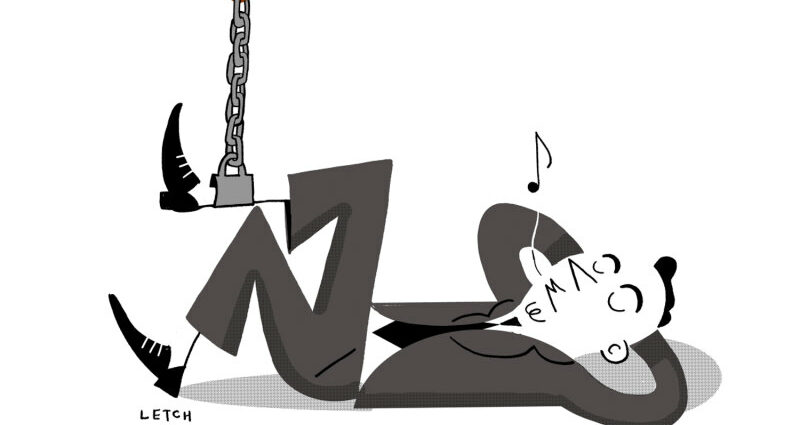After a nearly three-month delay, I finally half-fixed my (new and exciting) mortgage last week. I wrote here on July 3 that I planned to but the approval took much longer than expected – as all the while fixed rates rose and rose.
Then on Wednesday, our inflation figures came in higher than hoped (7.3 per cent already on its way to a forecast 7.75 per cent) and the possibility of further interest rate hikes ticked up.
Fixing your home loan comes with the hope that you will beat the bank and – ultimately – end up paying less than you would on a variable rate.Credit:Simon Letch
But crucially, although many fixed rates did the same, my lender’s still have not. So I nabbed one, fixing half my loan at 5.49 for four years, about 1 percentage point above the cheapest variable rate available today.
Yes, that’s a lot higher than what was available six months ago but with a brand-new loan, it is all I have to work with. Plus, it’s possible by the middle of next week when the Reserve Bank is expected to raise rates again, I will only be paying 50 basis points over the odds.
And this is the first of two personal considerations when thinking of fixing: the hope that you will beat the bank and – ultimately – end up paying less than you would on a variable rate.
This always seems questionable as fixed rates are priced so that banks win. Why else would they offer them?
But it’s the second individual factor that last week made me move: surety of repayments. As a single mother now, knowing (and limiting) my outlay takes priority.
I had structured my ‘loan’ as two equal variable ones so I could fix half if I later decided, with a phone call and without a lengthy second assessment. But besides the personal considerations, there is little-known fine print you should also factor into any lock-in decision.
Fix fact 1: You can only hook an offset account to a variable loan.
Well, you might be able to hook one to a fixed portion, but the ‘earn’ rate will be pitiful. You may only save half the interest on whatever money you hold in it.
A complete, quality offset will give you a dollar-for-dollar reduction in your loan balance and save you 100 per cent of the interest on that amount. Offsets are important and powerful debt-reduction tools if structured well.
All borrowers’ savings should be held in them, including your salary. And if you’re disciplined, consider putting your expenses on a credit card with a long interest-free period so you can sit your bills there and save bonus interest all month – for free.
And that’s all a big part of why I always advocate a variable portion of a loan.
Fix fact 2: You will lose any overpayments you have made directly into a loan.
Not many people realise that a material change like fixing your loan will probably see a recalculation of your balance and suck any amount by which you are ahead into that balance.
As inflation rises, economists are expecting further interest rate hikes.Credit:Bloomberg
If you’ve simply parked money in your loan for a later date – or if it’s savings as above – this will ‘disappear’ with the lock-in. Or at least be locked up forever more.
If you need to retain access to your money – and you should always keep aside some emergency funds – you must redraw it first. Note that even if you can make (limited) extra repayments once a fix commences, most lenders do not allow you to redraw them then either.
Indeed, it would be best if you never relied on a redraw – lenders can and have refused withdrawals even on variable loans. Making extra repayments into a separate offset account is a far safer and more flexible strategy.
Fix fact 3: The ‘ERA’ will really cost you if you sell your home or switch out of your loan early.
The early repayment adjustment (ERA) will apply if you try and break the contract. This is because you have committed to stay – and pay.
The calculation compensates the bank for the revenue it would lose and could mount to tens of thousands of dollars if variable rates have moved far below where you have fixed. You need to settle your bad bet.
For all of the above reasons, it’s a big decision to throw a fix in the mix.
But with another rate rise – and maybe even a double – now widely forecast on Tuesday, might one save you?
- Advice given in this article is general in nature and is not intended to influence readers’ decisions about investing or financial products. They should always seek their own professional advice that takes into account their own personal circumstances before making any financial decisions.
Nicole Pedersen-McKinnon is the author of How to Get Mortgage-Free Like Me. Follow Nicole on Facebook, Twitter or Instagram.
Most Viewed in Money
From our partners
Source: Read Full Article



